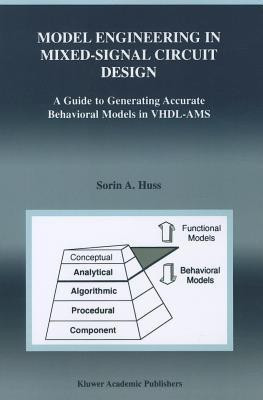Model Engineering in Mixed-Signal Circuit Design(English, Paperback, Huss Sorin Alexander)
Quick Overview
Product Price Comparison
Model engineering is an important activity within the design flow of in- grated circuits and signal processing systems. This activity is not new at all in computer engineering, however, and takes a central role in practice. Model engineering of digital systems is based on agreed concepts of abstraction - erarchies for design object representations as well as the expressive power of hardware description languages (HDL). Since their gradual introduction over time HDL have proved to form the foundation of design methodologies and related design flows. Design automation tools for simulation, synthesis, test generation, and, last but not least, for formal proof purposes rely heavily on standardized digital HDL such as Verilog and VHDL. In contrast to purely digital systems there is an increasing need to design and implement integrated systems which exploit more and more mixed-signal functional blocks such as A/D and D/A converters or phase locked loops. Even purely analog blocks celebrate their resurrection in integrated systems design because of their unique efficiency when is comes to power consumption - quirements, for example, or complexity limitations. Examples of such analog signal processing functions are filtering or sensor signal conditioning. In g- eral, analog and mixed-signal processing is indispensable when interfacing the real world (i.e., analog signals) to computers (i.e., digital data processing).


